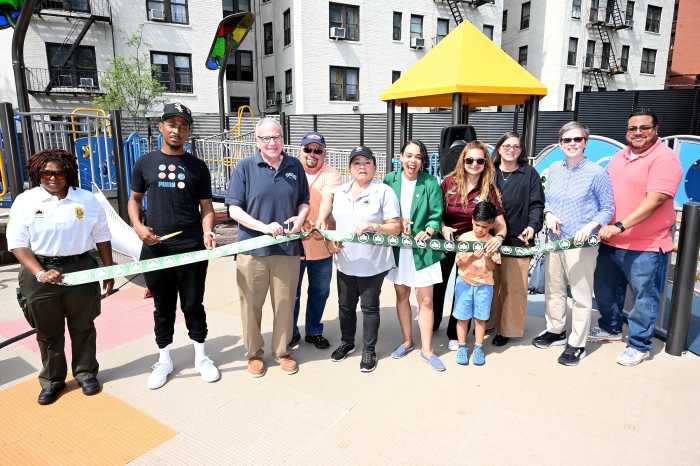The completion of tunnel work at the Van Cortlandt Park water filtration plant will ensure the future supply of fresh drinking water to Bronxites for years to come.
In a project that began nearly five years ago, the New York City Department of Environmental Protection announced on Monday, February 28 the completion of two major tunnels at the Croton Water Filtration Plant in Van Cortlandt Park that will carry water to and from the plant once it becomes full operational.
At a combined length of 7,965 feet, the two tunnels will connect the plant with the Croton Reservoir system in Westchester County, and will bring the fresh water to the distribution system near the Jerome Park Reservoir.
Although the $3 billion Croton Water Filtration Plant is not slated to be finished until mid 2012, DEP commissioner Cas Holloway said that the completion of the tunnels is the most important step in the construction of the plant that will serve nine million people in New York City and Westchester, Putnam, Orange and Ulster counties.
“The completion of this plant will fundamentally transform New York City’s drinking water system,” Holloway said. “For the public, the result will remain the same, great tasting, high-quality drinking water. Even in tough economic times, Mayor Bloomberg has continued to make the infrastructure investments necessary for the city to grow, and completing the Croton Water Filtration Plant is central to that effort.”
Many feared that the completion of the tunnels would be heavily set back in late January when a pipeline that was designed to transport waste from the Croton Water Filtration to the Hunts Point Wastewater Treatment plant was cancelled after a surprise discovery of old train tracks under Webster Avenue, directly in its path.
Continuing the construction of the pipeline on its originally designed route would have increased production costs from $18 million to $31 million and although the DEP was forced to develop a new plan that will run the pipe from the plant through Sedgwick Avenue, DEP spokesperson Michael Saucier said that the set-back would not affect the completion of the tunnels.
“The changing of the waste pipeline design was something we had to determine to make sure the project was done in the most efficient way possible,” Saucier said. “We knew it would not set back our current 2012 completion date of the Croton Plant and with the construction of the tunnels now complete, it is a big step in moving forward to complete the project.”
Through the tunnels, the plant will supply 290 million gallons of water per day, approximately 30 percent of New York City’s daily supply.
















